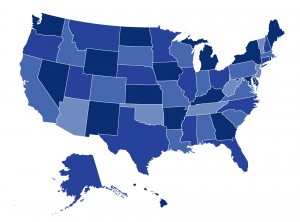What the Data Say About Offering Public Option Plans to Workers with Employer-Sponsored Insurance

Employer-sponsored insurance is the largest source of health coverage in the U.S., but the employer market’s historic status as the “backbone” of the U.S. health care system is imperiled by rising health care costs. A public health insurance option could help reduce health care costs and expand access to coverage for people with job-based insurance, and has received increasing support among employers.




